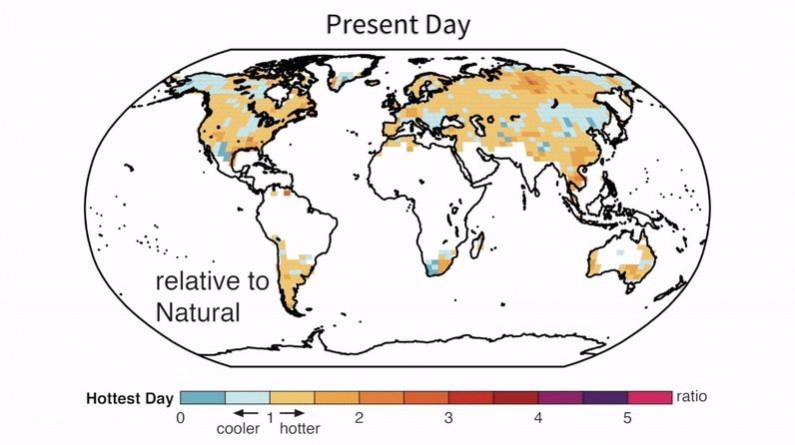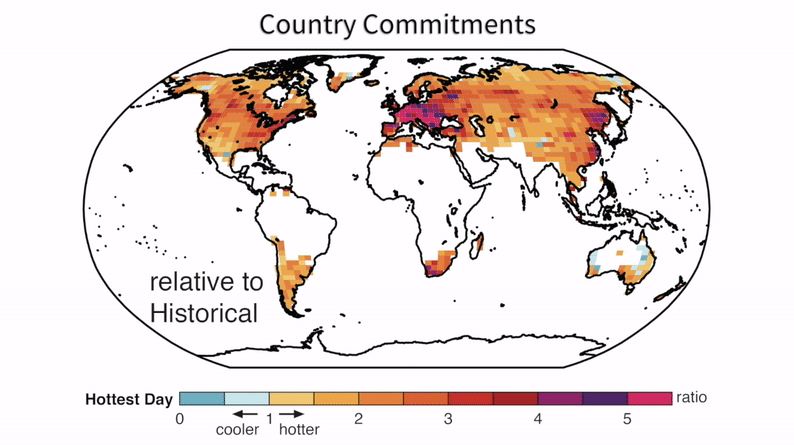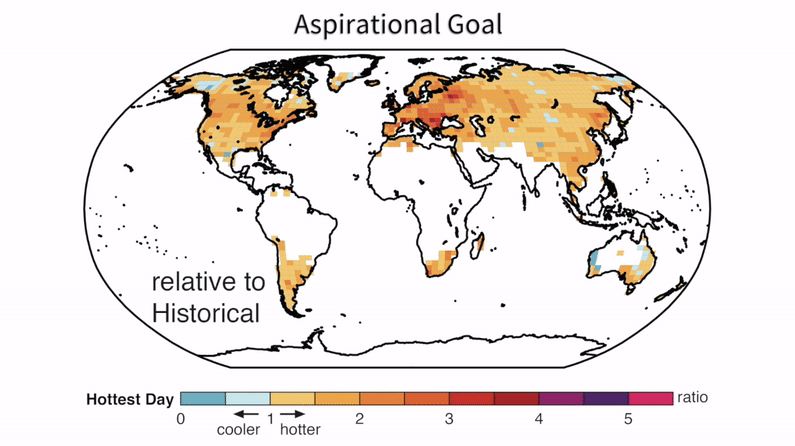
The Earth is very likely to face with extreme weather events despite continuous efforts by countries to meet the goal set by United Nations Paris Agreement, a new research has revealed. The international agreement envisaged to limit global temperature rise to less than 2 degree Celsius above pre-industrial levels.
Although the difference between the UN goal and the actual country commitments is just 1 degree Celsius, it could still increase the possibility of extreme weather events in the near future, according to a study from Stanford University.
As part of the study, published in the journal Science Advances on Wednesday, the researchers estimated the probability of extreme weather in the future based on two scenarios of the Paris Agreement, including increases of 1.5 to 2 degrees (if countries live up to their aspirations) and 2 to 3 degrees (if the countries meet their commitments).

"The really big increases in record-setting event probability are reduced if the world achieves the aspirational targets rather than the actual commitments," Noah Diffenbaugh, a climate scientist at Stanford University and the study's lead author, said in a statement.
"At the same time, even if those aspirational targets are reached, we still will be living in a climate that has substantially greater probability of unprecedented events than the one we're in now," Diffenbaugh added.
According to the researchers, if the greenhouse gas emissions are consistent with the commitments countries have made, the world is still likely to face a more than fivefold increase in the probability of record-breaking warm nights. This extreme weather will likely be experienced over approximately 50 percent of Europe, and more than 25 percent of East Asia.
This 2 to 3 degree of global warming could also lead us to a greater than three-fold increase in record-breaking wet days over more than 35 percent of North America, Europe and East Asia. This warming trend could also result in increasing hot days, milder cold nights and shorter freezes, the study claimed.
"Damages from extreme weather and climate events have been increasing, and 2017 was the costliest year on record," Diffenbaugh said. "These rising costs are one of many signs that we are not prepared for today's climate, let alone for another degree of global warming."
Diffenbaugh also urged the world's decision-makers to use "this kind of research" to take proper measures that can help us build resilience now and prepare for climate change effects in the future.














!['Had denied Housefull franchise as they wanted me to wear a bikini': Tia Bajpai on turning down bold scripts [Exclusive]](https://data1.ibtimes.co.in/en/full/806605/had-denied-housefull-franchise-they-wanted-me-wear-bikini-tia-bajpai-turning-down-bold.png?w=220&h=138)
![Nayanthara and Dhanush ignore each other as they attend wedding amid feud over Nayanthara's Netflix documentary row [Watch]](https://data1.ibtimes.co.in/en/full/806599/nayanthara-dhanush-ignore-each-other-they-attend-wedding-amid-feud-over-nayantharas-netflix.jpg?w=220&h=138)



